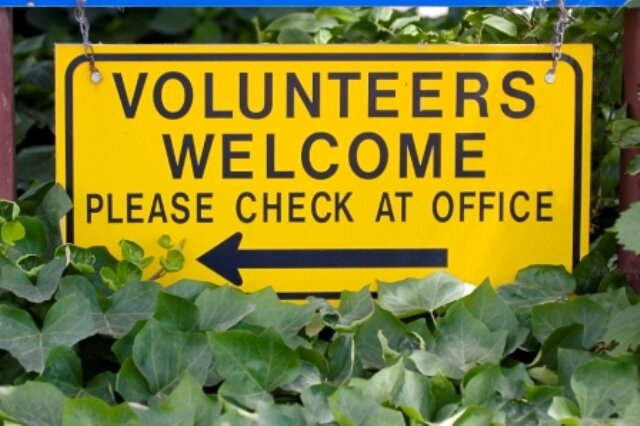Starting your journey towards a public health career


This section provides a ‘travel guide’ for starting your journey towards a career in public health and for developing and achieving your aspirations within a public health role.
This section is for anyone approaching a public health career for the first time. For example, you might:
- be a school leaver
- be a new graduate or in your last year at university (any discipline)
- have a Master's qualification in Public Health or a related discipline but not have worked in public health
- be considering public health as a career change
PHORCaST Travel Guide - Start your journey!
Sorting your destination | Packing your bags | Choosing your travel guide | Taking off on your journey |
Relevant experience to go on your CV | Learning styles | Promoting yourself on your career path |
Relevant courses or training | Funding/resources | Relevant first job |
Looking at your photos and mementos back home again
Sorting your destination
 Start by reading the section Public Health: Everybody’s Business, which tells you about what public health is and why you could have a satisfying and worthwhile career in public health.
Start by reading the section Public Health: Everybody’s Business, which tells you about what public health is and why you could have a satisfying and worthwhile career in public health.
What education, training or transferable skills do you have that you could bring to a public health role? Think about your strengths and what you have to offer: Are you enthusiastic, organised, open, and helpful? These are all attributes of a good networker. Do you consider yourself as being approachable, flexible, caring and empathetic? These are characteristics of a good manager. Would you describe yourself as being a good listener, caring and willing to help others? These are essential counselling and lifestyle skills.
Packing your bags
 Explore the six different categories of public health roles and jobs by reading about the following and selecting which ones interest you most:
Explore the six different categories of public health roles and jobs by reading about the following and selecting which ones interest you most:
- Improving people’s health
- Protecting people’s health
- Working with information
- Teaching and researching
- Maintaining and raising standards
- Leadership, planning and management
Think about your interests: Do you enjoy working with people and enabling them to take action for a healthier lifestyle? Then you could consider a career in health improvement. Or what about being a detective and finding the source of an epidemic outbreak or cluster of illnesses? Then you could consider health protection. A love for crunching numbers could point you in the direction of information analyst, while teaching and research could lead you to a career in academic public health. There are so many opportunities, and you need to decide what you are passionate about.
Choosing your travel guide
 Go to the Careers and roles section and search the roles on offer in each category. A number of different roles will come up with information on what training, qualifications and experience are required for each. You can also click on career stories of people in these roles and find out how they got there.
Go to the Careers and roles section and search the roles on offer in each category. A number of different roles will come up with information on what training, qualifications and experience are required for each. You can also click on career stories of people in these roles and find out how they got there.
 Taking off on your journey
Taking off on your journey
Do your homework and look up relevant national websites which give information on roles that interest you. See if you can find someone locally to talk to – your local council or a local NHS organisation or a local voluntary organisation may be able to help. If you are interested in a particular area of work, the national organisation for that profession can make some suggestions. Use your local careers service.
Talking to family and friends may also help when exploring options, but beware that they may not be trained in techniques for helping you explore your priorties and options in an objective way.
 Relevant work experience to go on your CV
Relevant work experience to go on your CV
Many public health jobs require people already to have some experience in the workplace to be able to demonstrate skills and understanding of what different roles involve. This can be hard if this is your first job, even if you already have a Master's Degree in Public Health. If you are finishing school or a new graduate, see if you can get some work experience as a volunteer helper for a local charity or hospice or perhaps one of your local health or social care organisations – don’t just think about hospitals, why not choose a health centre or your local Primary Care Trust or council?
 There are many types of learning opportunity in the wider community, e.g. working in a voluntary capacity (school governor, hospital visitor, helping at a youth club or old people's home) can provide you with experience whilst making a contribution to your community.
There are many types of learning opportunity in the wider community, e.g. working in a voluntary capacity (school governor, hospital visitor, helping at a youth club or old people's home) can provide you with experience whilst making a contribution to your community.
Thinking about your achievements is also important for maintaining an up to date curriculum vitae (CV). You can start to think seriously about your successes and your development needs using several techniques.
Volunteering is where it all started. I’m so glad the third/voluntary sector has been recognized for the massive health and wellbeing contributions it brings to communities.
Janine Ewen (Press Officer/Communications)
Read Janine's comments on how volunteering introduced her to public health.
Learning styles
Think about how you learn best and consider whether the development opportunities available to you suit your learning style. Development does not always mean training or courses. Find more information on learning styles here.
Promoting yourself on your career path
 Promoting yourself on your career path will increase your confidence and raise your profile. If you are looking for career progression you do need to distinguish yourself from others and demonstrate that you have something more to give.
Promoting yourself on your career path will increase your confidence and raise your profile. If you are looking for career progression you do need to distinguish yourself from others and demonstrate that you have something more to give.
You will find some useful tips on raising your profile here.
Relevant courses or training
If you are interested in general training, there are Foundation Degrees in public health and some universities also do first degree courses in public health. It is also possible to get apprenticeships in public health.
If you know already you want to have a career in a public health role where a specific qualification is required – e.g. health trainer, public health nurse, public health doctor, environmental health officer – go to the relevant page in the careers and roles section which will provide information that will help you to find out which universities or colleges run accredited courses.
If you are already undertaking a Master's course in a public health related discipline (e.g. an MPH) you may want to consider specialising in public health by undertaking specialty training. The Faculty of Public Health website has detailed information on the training schemes.
Because the choice is so wide, public health careers are suitable for individuals with a range of educational qualifications and backgrounds from NVQs upwards. Do not feel you have to have a scientific degree or have done scientific “A” levels. Being numerate helps as it does in any career.
Funding/resources
If you are already working within the public sector you may be able to access relevant courses to help you develop with funding from your employer.
Relevant first job
If you have some work experience and have done a relevant course, are clear which category of public health you wish to work in, you then need to look at relevant jobs websites. Beware, job titles will not always help. Use the advanced search option, for example, on NHS jobs and put in relevant keywords – e.g. health promotion, health improvement, public health etc to make sure all relevant jobs will come up.
Note that having a Master's in Public Health on its own will not guarantee you a job in public health in the UK. A Master’s degree may be an advantage but employers will also look for those who have relevant work experience and can demonstrate a certain level of knowledge and skills. Use the Public Health Skills and Career Framework to help you map where you are already in terms of your competences and knowledge.
Remember also, for many roles in public health, you may have to start at the bottom and work your way upwards. Look for entry level jobs which may involve entering data or mainly administrative. Be prepared to learn on the job. The health service and local councils do also offer day release training for some roles. Investigate the possibilities.
Lastly, get your CV into shape before you apply.
 Looking at your photos and mementos back home again
Looking at your photos and mementos back home again
If you make time to think about your experiences, you can learn a lot about how to approach things in the future, to capitalise on the good and to minimise the bad. Reflection can help you recognise what you are learning from your work, and your strengths and weaknesses.
Find more information on reflective practice here.